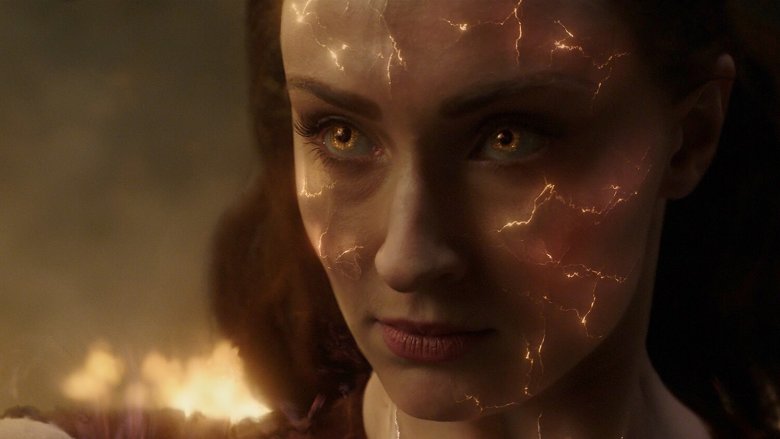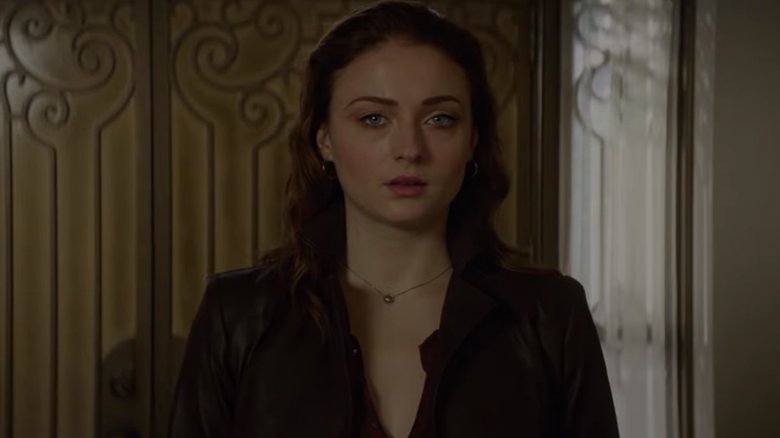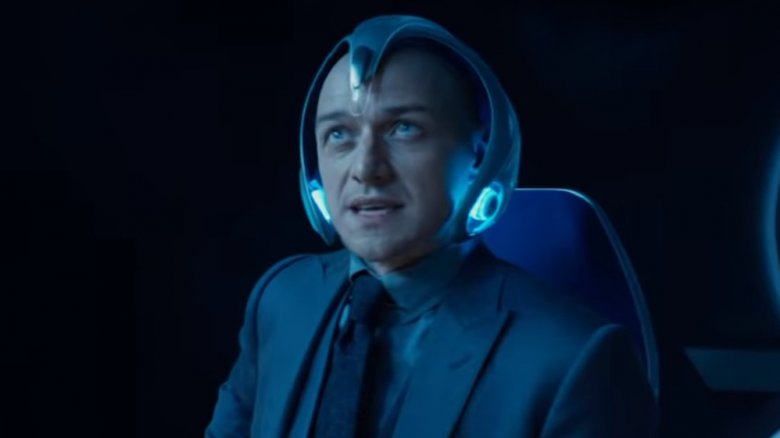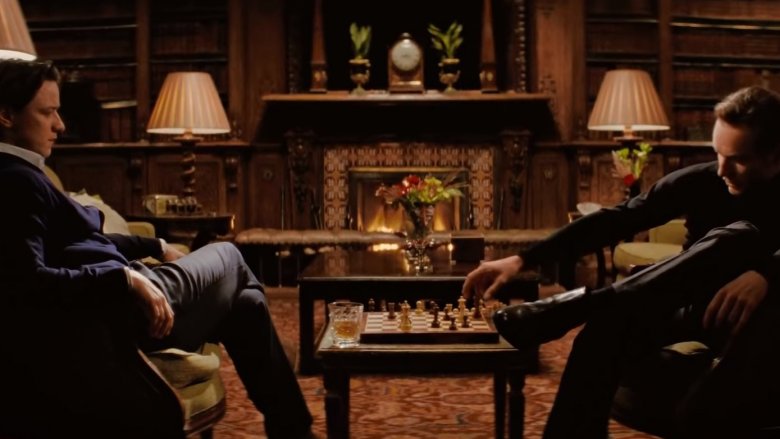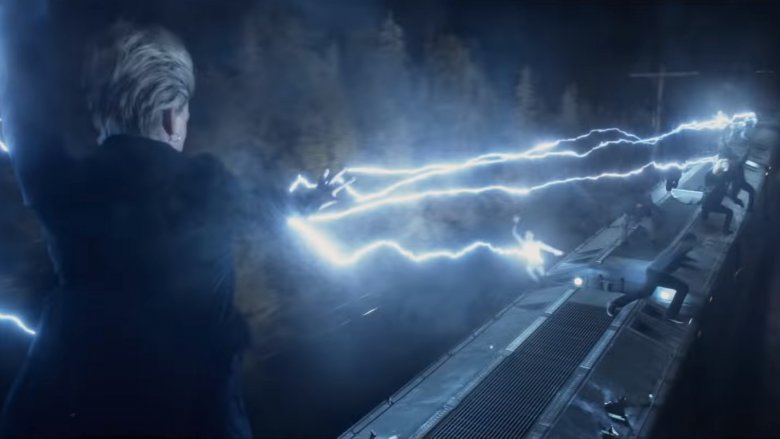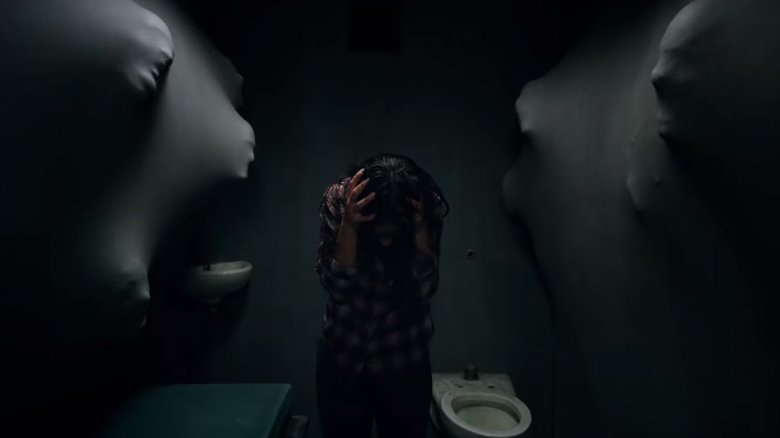The Ending Of X-Men Dark Phoenix Explained
It's been nearly 20 years since the X-Men franchise began back in 2000, almost single-handedly kicking off this whole superhero blockbuster craze. Over the course of two decades, there have been a lot of X-movies — some good, some bad, all pretty weird in one way or another. X-Men: Dark Phoenix is, by all appearances, the final installment in this incarnation of the franchise, and it goes out with a sense of finality and closure. Unlike the Phoenix referred to in the film's title, it's pretty much guaranteed that none of these specific characters or storylines will be picked up in a future film. If you're hoping for a sequel to come along and elaborate on any of the dangling plot threads, you're out of luck, friend.
Fortunately, we're going to try and do what the never-coming sequel won't: figure out just what it all meant when the credits rolled. Here's the ending of X-Men: Dark Phoenix explained.
The Jean Genie
During the final battle between Jean Grey and the evil alien played by Jessica Chastain, the villain says, "Your emotions make you weak." Jean replies, "No, my emotions make me strong." After that, she goes full Super Sayan, flies into the sky, and blows up the bad guy, along with herself.
The moment is one of the few times Jean seems to have full control over herself, her powers, and her desires. From the moment she first appears, she's unsure of just about everything. When she's in the car with her parents as a child, she can't control her emotions, and she causes the car crash that kills her mother. Later, she asks Mystique if she's sure about the space mission's safety. Then she needs a psychic pep talk from Xavier to have the confidence necessary to keep the shuttle together as it's breaking apart. Throughout the movie, Jean's struggle with controlling or understanding her emotions hold her back and cause her to harm her friends.
And her inability to process her emotions is the driving force behind her conflict with Xavier. He put up mental blocks so she wouldn't feel the grief over being abandoned by her father. When she finally makes peace with both her father's abandonment and the fact that Xavier's mental manipulation was a bad decision made for the right reasons — out of love and protection — she's finally able to take full control of the Phoenix force and end the alien threat.
X marks the spot
While Jean Grey seems like she's the main protagonist of the film, she's not the only character to go on a journey and grow as a person. Professor Xavier likewise has an arc that seems him change from when the film starts to when it ends. He begins the story in a place of power and certainty in his correctness — whenever he issues an order, it's the right call, no matter the cost that others have to bear. He's proud and confident, and as the film continues we learn that he's also pretty stubborn in the face of evidence that sometimes he makes the wrong call.
The turning point for Xavier comes when he and the rest of the X-Men are trapped in that prison train wending its way through upstate New York. He admits he was wrong to place mental blocks in Jean's mind — meddling with her memories and her ability to process her trauma — and apologizes to Beast and everyone else for his role in Jean's descent into apparent supervillainy. Xavier figures out that while it's great to take credit for the good things you do in life, you can't use that to cover up the bad things you might do as well.
As a wise woman once told us, "You take the good, you take the bad, you take them both, and there you have the facts of life... the facts of life."
Checkmates
The final scene in the film shows lifelong frenemies Professor X and Magneto settling in to play a game of chess at a public cafe somewhere in France. The two seem to be on good terms and not currently sitting in prison cells — despite the fact that while the climax of the movie built up, the US government had plans to establish mutant internment camps. We never really find out how or why the feds change their minds on that point, especially since in the aftermath of that big final fight, all those MCU agents seemingly got killed, and their train got completely trashed. But whatever! Some elements of endings simply cannot be explained, friends.
Anyway, if you're new to this whole X-Men thing, here's the scoop on that final game of chess: all the way back in that first X-Men movie, we see Professor X and Magneto playing chess against one another. Their match is a symbol of their eternal struggle: they both want the same thing — mutant safety and security — but come at the problem from opposite sides. The two sit for chess games in several other films, including X-Men: First Class, which is ostensibly the first installment in this current iteration of the franchise. Ending on a game of chess is a nice touch that longtime fans of the films will be sure to appreciate.
Let's talk about that train
Considering this film deals with a cosmic super-entity from space and a bunch of evil aliens trying to take over the world, there's very little action that actually takes place in outer space. The climax especially is weirdly earthbound, with a final batch of battles that take place in, on, and around a train. If that seems a little odd to you, there's a very good reason: the ending was reshot to avoid being too similar to another superhero movie.
That particular detail came out of a Yahoo! Movies UK interview with Professor X actor James McAvoy, who said, "The finale HAD to change. There was a lot of overlap and parallels with another superhero movie." While McAvoy never says which movie prompted the reshoots, there seems to be ample reason to believe that the culprit is the similarly space-bound superhero flick Captain Marvel, a film that features a third act with a massive fight in space. It's difficult to know what the original ending might've looked like had it not been reshot — in the end, the film is what it is. But if you were wondering why a movie about alien space gods ends with a great big smash-up on a train, well, that's why.
Solve for X
Is this the last time we'll see mutants on the big screen? Simply put, no. We'll get more X-Movies in the not too distant future. For starters, while this seems like the ultimate wrap-up to the X-Men franchise in its current incarnation, there's still one more unreleased film from the franchise: New Mutants. Now that the rights to the X-Men have returned to Marvel Studios in the wake of the Fox merger, parent company Disney pushed the movie back to April 2020. Whether or not that release date will stick — the movie's been delayed a couple times before — remains to be seen.
More importantly is what Disney and Marvel will do with the mutants now that they're available to be folded into the Marvel Cinematic Universe. While they've certainly built an amazing shared universe using formerly lower-tier comic book characters like Thor and the Guardians of the Galaxy, the X-Men have long been a jewel in the Marvel Comics crown. The X-Men may seem like also-rans right now compared to the monumental success of Avengers: Endgame, but at one time, their movie kickstarted the entire superhero movie craze.
The end of Dark Phoenix effectively closes the book on this group of characters. But we've seen several Spider-Man reboots, and Warner Bros. reboots Batman like it's going out of style. We'll see the X-Men in theaters again before you know it. It's really not a question of if, at this point, but rather one of when — and how.
